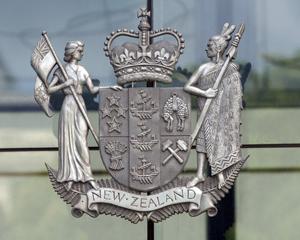A bill strengthening laws against gangs is "tinkering around the edges" of tackling the problem of organised crime, the Police Association says.
Submissions on the Gangs and Organised Crime Bill before Parliament's law and order select committee today were varied.
The proposed legislation would make it an offence to be a member of a criminal organisation and increase police powers to intercept electronic information and storm gang fortifications.
It would also make gang membership an aggravating factor in sentencing and allow for tougher sentences against those in organised criminal groups.
"The bill is good in so far as it goes, but the reality is that it won't make much difference," Police Association president Greg O'Connor said.
"It's not going to have criminals out there shaking in their boots." The association submitted that putting "relentless pressure" on gangs and targeting gang families would make the difference.
For that, police needed a total commitment to tackling gangs, meaning a change of priorities in policing.
They also needed to be backed by legislation robust enough to allow them to collect evidence that would stand up in court -- something they had hamstrung by at times when chasing convictions in the past.
Mr O'Connor said increasing electronic operations was a good move, but police needed more resources.
He said fortifications and public displays of gang patches were "yesterday's issues" as gangs operating under the radar became more adept at organised crime.
The Green Party voted against the first reading of the bill in February, and MP Metira Turei today questioned Mr O'Connor over whether "breaking up families" in communities was a good approach.
Submitters such as Kim Workman's Rethinking Crime and Punishment organisation, The National Council of Women of NZ (NCWNZ) and Wesley Community Action (WCA) said ramping up pressure on gangs was likely to be counter-productive.
Mr Workman said the bill should be forwarded to the Attorney-General for an opinion as to whether legislation infringed the Bill of Rights.
His submission was focused on Maori gangs and said the legislation had potential to have a negative impact on innocent family or friends of gang members.
He said the Bill of Rights accorded all New Zealanders freedom of association and freedom from discrimination on the grounds of family status.
The groups pushed for non-confrontational approaches towards gangs in communities, such as inclusion and interaction rather than alienation.
"If we operate out of fear and paranoia then we can undermine the fragile, positive initiatives in those communities," said WCA director David Hanna.
NCWNZ members submitted that over many decades there was no evidence that "punishment and more punishment" had any effect on the problem of violent offending.
Some members feared that longer prison sentences could strengthen gangs by deepening common experience.
Implementing shorter sentences with effective rehabilitation programmes was the way forward, the majority of members had agreed.



